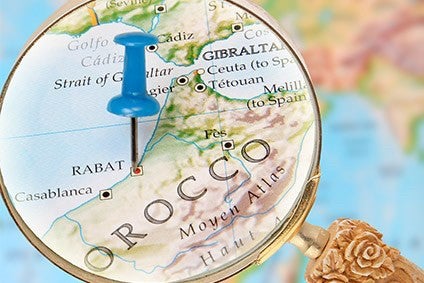
An incident in which 28 workers died following heavy flooding in an illegal garment factory in Morocco last week has prompted new calls for a binding international agreement on factory safety and working conditions.
At least 28 garment workers died at the factory in Tangier, with first reports indicating that at least 19 women and nine men between the ages of 20 and 40 died after a short circuit caused by flooding following heavy rains in the region. A judicial investigation has been opened to determine the circumstances of the tragedy and clarify responsibilities.

Discover B2B Marketing That Performs
Combine business intelligence and editorial excellence to reach engaged professionals across 36 leading media platforms.
The factory, located in the basement of a residential building, did not meet the necessary health and safety conditions, and unions are calling for those responsible to be held accountable.
The Clean Clothes Campaign (CCC) now says the tragedy highlights the urgent need for better working conditions in the Moroccan garment industry – as well as an international binding agreement on factory safety that holds brands, retailers and factory owners accountable for creating safe and healthy workplace conditions.
“They say these are illegal factories, but in reality everyone knows that they exist and they are well-known companies. We call them clandestine factories because they do not respect the most minimal security conditions or labour rights,” Aboubakr Elkhamilchi, founding member of the Moroccan grassroots organisation Attawassoul, told the Ara newspaper.
The collapse of the Rana Plaza factory in Bangladesh in 2013, killing over 1,100 workers, led to a binding and enforceable system that has improved factory safety for over 2m workers in the country. Currently, unions and labour rights organisations are calling for this programme to turn into an international binding agreement, that could be used to implement and enforce the same levels of health and safety in garment supply chains in other countries around the world.

US Tariffs are shifting - will you react or anticipate?
Don’t let policy changes catch you off guard. Stay proactive with real-time data and expert analysis.
By GlobalData“The need for brands and retailers to commit to such a binding agreement with global union federations is further underlined by this tragedy and its causes,” CCC says. “Brands and retailers have the responsibility to ensure a safe and healthy workplace. While that was always a challenge, the combined threats of climate change and a global pandemic make a concerted approach to health and safety even more pressing. Brands and retailers can meet this obligation by committing to the proposed binding international agreement on safety that will provide a framework for creating safe and healthy working conditions for the workers in their supply chains.”
According to the Moroccan employers’ association AMITH, of the 1,000 million garments that are manufactured in the country each year, 600m are produced in factories subcontracted by foreign firms. The main destinations for Moroccan clothing exports are Spain, France, the UK, Ireland and Portugal.
A recent study published by CCC member Setem Catalunya and Attawassoul showed that 47% of the people surveyed worked more than 55 hours a week for monthly salaries of around 250 euros, 70% did not have a labour contract, and up to 88% of those surveyed claimed they did not enjoy right to unionise.
“This tragedy must be a wake-up call for brands and retailers sourcing from Morocco to take responsibility for the working conditions of the workers making their clothes, by improving working conditions in the Moroccan supplier factories, committing to an international binding agreement on health and safety, and ensuring justice for the workers and their families in the event that a brand is identified as sourcing from this particular factory.”





